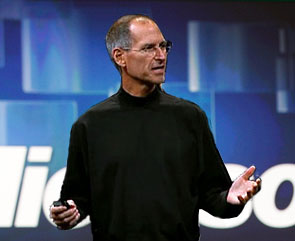微軟公司
"We were smoked." That was the blunt email sent to four colleagues by Jim Allchin, the Microsoft executive in charge of Windows development,
“我們被干掉了。”這是微軟公司負責Windows系統開發的主管吉姆·阿爾欽發給4個同事的一封直言不諱的郵件,
at 5 p.m. the day he saw the iTunes Store.
發件時間是下午5點鐘,吉姆剛剛看完iTunes商店的發布會。
It had only one other line: "How did they get the music companies to go along?"
整封郵件只有兩句話,除了上面的這句,還有一句:“他們是怎么把音樂公司給拉進來的?
Later that evening a reply came from David Cole, who was running Microsoft's online business group.
那天晚上,負責運營微軟在線業務的戴維·科爾回信了:
"When Apple brings this to Windows (I assume they won't make the mistake of not bringing it to Windows), we will really be smoked."
“一旦蘋果把iTunes引入Windows系統(我覺得他們不會愚蠢到不進軍Windows),那我們才是真的有麻煩了。”

He said that the Windows team needed "to bring this kind of solution to market,"
他說,Windows團隊需要“把這種解決方案推向市場”。
adding, "That will require focus and goal alignment around an end-to-end service
他還補充道;“我們的關注點和目標要集中在端到端服務上,
which delivers direct user value, something we don't have today."
傳遞用戶價值,這是我們現在還沒能做到的。”
Even though Microsoft had its own Internet service (MSN),
即使微軟有自己的網絡服務,
it was not used to providing end-to-end service the way Apple was.
但它并沒有像蘋果那樣提供“端到端的服務”。


